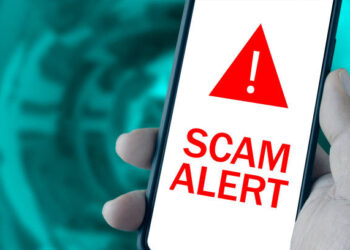
There are many fraud schemes today with mouth-watering offers, one of which is the popular charity scam.
It is human nature to engage in fundraising or make moves to help fellow humans, especially those affected by pandemics such as the COVID-19 disease and other environmental disasters including; flooding, war, inflation, and food scarcity. All in a bid to support the affected persons, donators or patrons send their money to individuals or cooperations, who, in pretense, act as a foundation for helping the poor, needy, or less privileged.
Why People Fall For Charity Scams
There are over 7 billion people in the world today, and at least 30% have been, or are still being scammed. Here are a few reasons why.
- Scam Innovations: Scammers come up with new ideas to defraud people of their money, especially those with the heart of giving.
- Lack of Knowledge: Most people do not know where or how to go about donations. Especially those which involve sending funds to a distant country as aid for food, water, shelter, and even those affected by war.
Here are a few tips to avoid charity scams.
Tips To Avoid Falling For Donation/Charity Scams

1. Do your research
Check the organisation’s website. Ensure to do some research if you have not heard of them before.
Ask friends, neighbours, or people in the same community as you if they have heard of the said charity organisation and what would be their take or opinion on donating to the organisation.
Also, one can look for charity organizations that spend a considerable part of money realized (70% or more) on programs that benefit communities affected by pandemics or other environmental disasters. 20% or less of the funds donated can be used for fundraising and administrative expenses.
However, several bodies exist to help verify charity organizations. They include;
Better Business Bureau Wise Giving Alliance: They help sort out trustworthy charity organizations for donors to support. It is an American charity monitoring organisation founded in the 1920s.
Charity Watch: This United States-based organisation was created by Daniel Borochoff in 1992. It provides resourceful information about charities’ financial efficiency in fundraising, governance processes, and accountability.
Charity Navigator: One of the world’s largest and most used independent nonprofit evaluators, established in 2001 by Pat Dugan and Marion Dugan. It aims to provide resourceful information, tools, and ratings for donors and other philanthropists worldwide.
2. Ask Questions

Questions to be asked could be directed to the managers of the charity organizations or firms for valid registration documents, preferably from an international body like the United Nations, UNICEF, etc., or how funds will be spent. A nonprofit organisation will be happy to discuss its long-term goals, missions, and objectives with you.
One can also ask questions on previous projects and any other inquiries one deems fit.
Also, knowing how charity organizations intend to solve a particular problem is essential to understanding their mission. For instance, fundraising for internally displaced persons (IDP) in “County A,” which resulted as a result of war started by the neighbouring “Country B.” The funds to be raised could be used to feed such persons, provide shelter, clothing, utilities (light, well-maintained sewage system), skills, and even education for the affected children.
Before doing so, the total number of IDPs should have been estimated and how many of them the charity aims to reach out to for a start.
3. Be on alert

Often, scammers, especially those for charity organizations scams are sweet talkers; they talk their victims into the need to contribute or donate to them, and the benefits to be offered, such as name recognition on international news, a patron badge, a customized charity passport, which allows the victims to enter into any country as a result of their services to humanity, and any other sweet talks and mouth-watering offers.
The victims have little or no sense of foul play and hence, embark on the “donkey ride,” putting their funds wholeheartedly. Some even go as far as donating, once, twice, or even more, before realising that they were being scammed all this while.
This trend of charity and other online scams gets worse by the day. According to the Federal Trade Commission, and CNBC, the world experienced a rapid increase of over 34% in 2018 and 70% in 2021 of money lost to fraud.
However, one can avoid such by being on high alert. Giving is a necessity today, significantly to help areas affected by pandemics in our society today. Do not heed pressure from any individual or charity organizations asking you to engage in their fundraising campaign.
4. Select a safe payment method

There are many factors to consider before paying the said charity organizations. One of which is the payment processor.
The payment processor is a gateway that allows easy and secured funds transfers from donors’ bank accounts to charity organizations’ bank accounts.
When money is debited from your debit card by the charity website, the payment processor sends the encrypted information to your bank for confirmation before funds are approved for disbursement to the organisation’s merchant account.
Another good advantage of the payment processor is that they enable you to trace where your money is being sent. There have been cases where the payment account froze organizations’ funds due to early complaints lodged by customers or donors.
According to financial professionals, about 74% of organizations’ check payments were subject to fraud attempts in 2019.
Using these payment gateways is highly encouraged as they have inbuilt tools which provide traceable locations of potential scammers or perpetrators.
Payment processors help to receive cash in different currencies. Most people prefer using Visa cards, as they have lower charges for processing transactions. Recurring payments, incoming subscriptions, and managing company data of fundraising organizations can be implemented using the Automated clearing house (ACH) payment processor. This computer-based electronic network helps process transactions between two or more individuals or organizations.
Final words
Most legit charity organizations, like the Red Cross, World Health Organisation (WHO), and United Nations International Children’s Eradication Fund (UNICEF), have a physical office, ranging from one to a few hundred worldwide. The majority are duly recognized and registered with the government and the world governing charity bodies, respectively.
Be sure you donate to the right charity organizations, not some random site you see online needing funds to help people.
Also, filing a complaint to the Federal Trade Commission in case of a confirmed charity scam is advised. This will help locate and apprehend perpetrators of charity scams and other internet-related scams, hence making the world freer of scams by the day.



![5 [Video] Content-Sharing Sites To Make Money From in 2024 5 sites to monetize your video content](https://www.knowseeker.com/wp-content/uploads/2023/07/content-sharing-350x250.jpg)













